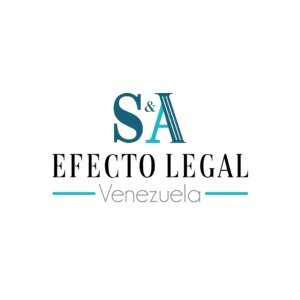Best Communications & Media Law Lawyers in Maracaibo
Share your needs with us, get contacted by law firms.
Free. Takes 2 min.
List of the best lawyers in Maracaibo, Venezuela
About Communications & Media Law in Maracaibo, Venezuela
Communications & Media Law in Maracaibo, Venezuela, encompasses the legal frameworks governing the dissemination of information through various media channels. It covers television, radio, print, and digital media, touching on issues like freedom of speech, censorship, broadcasting rights, and intellectual property. The legal landscape is influenced by both Venezuelan national laws and local regulations, aiming to balance media freedom with the protection of public order and morality.
Why You May Need a Lawyer
Individuals and businesses in Maracaibo may find themselves in need of legal assistance in Communications & Media Law for several reasons. These can include:
- Disputes over intellectual property rights related to media content.
- Issues with media licensing and compliance with broadcasting regulations.
- Cases involving defamation, libel, or slander in media reports.
- Censorship challenges or questions regarding freedom of expression.
- The impact of digital transformation on traditional media contracts and rights.
Local Laws Overview
Key aspects of local laws pertinent to Communications & Media Law in Maracaibo include:
- The Organic Law of Telecommunications which outlines the rights and responsibilities of telecom service providers and users.
- Regulations from CONATEL (National Telecommunications Commission), which oversees media content and compliance.
- Venezuela’s Penal Code provisions relevant to defamation and media crimes.
- The Law on Social Responsibility in Radio, Television, and Electronic Media, which addresses content standards and censorship regulations.
- Intellectual property laws that protect content creators’ rights.
Frequently Asked Questions
What is the role of CONATEL?
CONATEL is the regulatory authority responsible for managing the telecommunications and broadcasting sectors in Venezuela, ensuring compliance with relevant laws, and addressing disputes related to media content.
How can I protect my intellectual property in media content?
To protect your intellectual property, you should register copyrights, trademarks, or patents with the appropriate governmental bodies. This grants you legal recourse in cases of unauthorized usage or infringement.
What constitutes defamation in Venezuelan media law?
Defamation involves making false statements about an individual, causing harm to their reputation. Since Venezuelan law has specific provisions for defamation, it's advisable to seek legal help if involved in such cases.
Are there restrictions on digital content in Maracaibo?
Yes, digital content is subject to certain restrictions, especially regarding ethical standards, public morality, and national security. Legal advice can help ensure compliance with these regulations.
What should I do if I receive a cease-and-desist letter related to media content?
If you receive a cease-and-desist letter, consult a lawyer immediately to understand your position and potential responses. Acting quickly can help resolve disputes more amicably.
How does censorship affect media operations in Venezuela?
Censorship can impact the distribution and content of media, limiting what can be broadcasted. Legal professionals can help navigate these limitations while protecting rights to free expression.
Can online publications be held liable for user-generated comments?
Depending on the situation and whether moderation occurs, online platforms may be liable for defamatory comments by users. It’s crucial to implement policies and legal strategies to manage these risks.
What legal recourse is available in case of media contract breaches?
In cases of contract breaches, you can seek enforcement through legal channels, potentially obtaining compensation for damages. Experienced lawyers can provide guidance on pursuing these claims.
What licensing is required to start a radio station in Maracaibo?
Starting a radio station requires obtaining licenses from CONATEL, meeting technical, legal, and content-specific requirements. Legal advisors can assist with navigating this process.
How do local media laws affect advertising in Maracaibo?
Advertising must comply with ethical guidelines and specific content regulations. Legal experts can help ensure that advertisements do not violate local laws or face penalties.
Additional Resources
For those seeking more information or assistance in Communications & Media Law, consider reaching out to:
- National Telecommunications Commission (CONATEL) for regulations and licenses.
- Local media law firms specializing in Communications & Media Law.
- University of Zulia’s Faculty of Law for academic publications and workshops.
- Legal Aid organizations offering free or low-cost consultations.
Next Steps
If you require legal assistance in Communications & Media Law, begin by consulting a qualified attorney who specializes in this field. They can assess your specific situation, provide tailored advice, and represent you in any legal proceedings. It’s also beneficial to stay informed about changes in local laws and regulations to mitigate potential legal issues proactively.
Lawzana helps you find the best lawyers and law firms in Maracaibo through a curated and pre-screened list of qualified legal professionals. Our platform offers rankings and detailed profiles of attorneys and law firms, allowing you to compare based on practice areas, including Communications & Media Law, experience, and client feedback.
Each profile includes a description of the firm's areas of practice, client reviews, team members and partners, year of establishment, spoken languages, office locations, contact information, social media presence, and any published articles or resources. Most firms on our platform speak English and are experienced in both local and international legal matters.
Get a quote from top-rated law firms in Maracaibo, Venezuela — quickly, securely, and without unnecessary hassle.
Disclaimer:
The information provided on this page is for general informational purposes only and does not constitute legal advice. While we strive to ensure the accuracy and relevance of the content, legal information may change over time, and interpretations of the law can vary. You should always consult with a qualified legal professional for advice specific to your situation.
We disclaim all liability for actions taken or not taken based on the content of this page. If you believe any information is incorrect or outdated, please contact us, and we will review and update it where appropriate.








